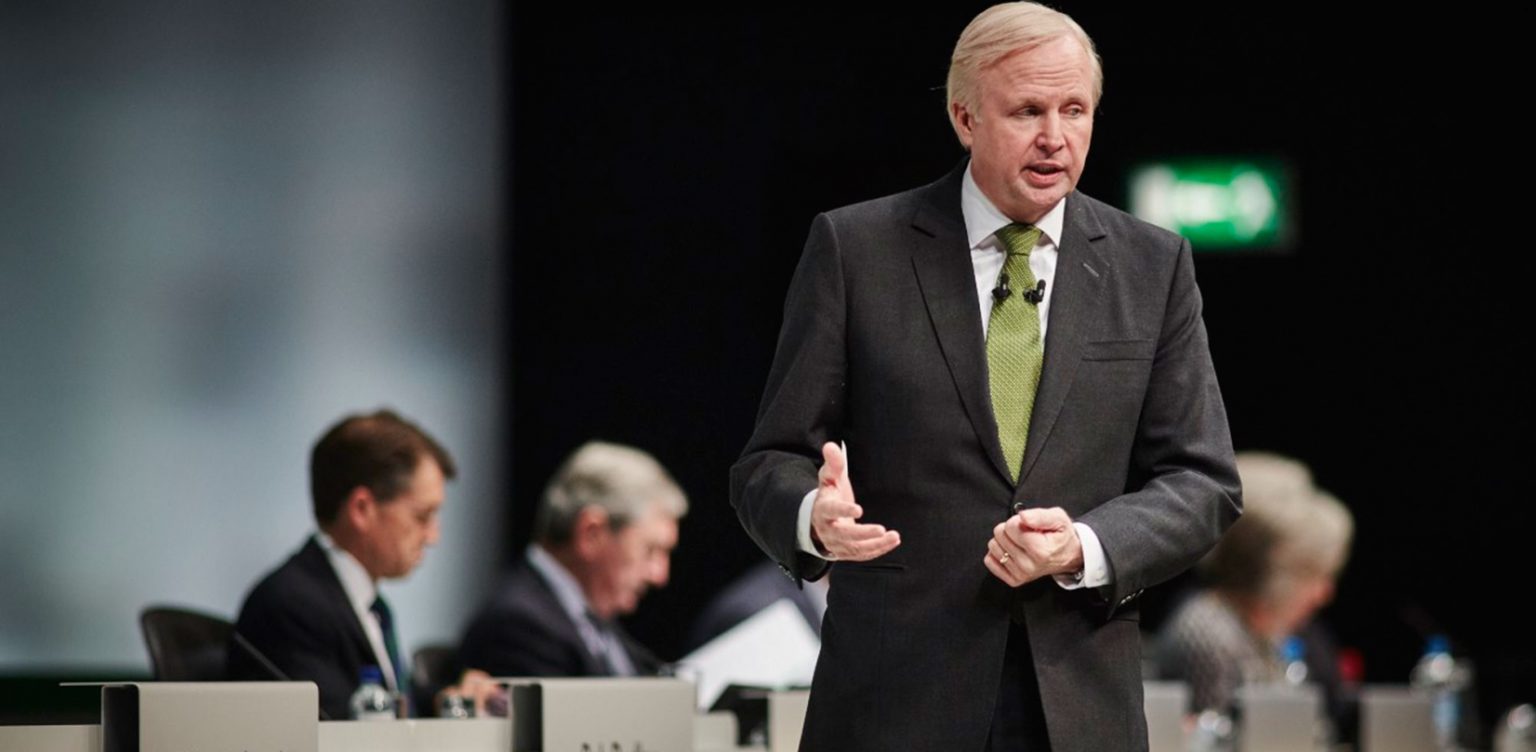Shareholders accused oil giant BP of falling short on its promise to be more transparent about its impact on climate change and resilience to a low-carbon world during its Annual General Meeting (AGM).
During the 14 April shareholder meeting BP faced a number of questions on climate change from both institutional investors and activist shareholders.
In response, BP’s chief executive Bob Dudley said “we want to be part of the solution on climate change”.
However, the company’s response has been criticised as just “more of the same” – support for the Paris deal, a call for carbon pricing, and encouraging a switch from coal to gas.
And according to Catherine Howarth, chief executive of responsible investment group ShareAction, Dudley failed to adequately address the resolution adopted last year committing the company to greater openness about its impact on emissions, the resilience of its portfolio in a low-carbon world, and lobby efforts on climate change.
Warming Scenario
Despite BP publicly acknowledging the risk of climate change and joining the Oil and Gas Climate Initiative to support the international COP21 climate summit last December, its own forecasts continue to question the Paris goal of limiting warming to 2C.
Instead, the company’s central scenario is consistent with a temperature rise of between 4-6C by the end of the century compared to pre-industrial times – suggesting that it does not believe the Paris deal will be successful.
Even its scenario for a “faster transition” to a low carbon energy system would not see global average temperatures limited to 2C of warming.
As a report by ShareAction released ahead of the AGM criticised, BP has not published a business strategy that would suit an economy with less than 2C of warming and its pay incentives continue to encourage extracting fossil fuels.
“It does not appear from the answers provided [during the AGM] and the company’s reporting that BP is implementing a long-term business strategy which would be resilient in a low carbon economy,” said Rouse, “or that the company is planning for significant disruptive events such as significantly scaled up renewable provision or electrification of the transport fleet – prudent business planning would suggest the company should be modelling such scenarios.”
BP‘s Australia Plans
Shareholders weren’t the only ones upset with BP’s actions this year. In both the UK and Australia environmental campaigners protested the company’s plans to explore for oil in the pristine waters of the Great Australian Bight.
According to a report by Climate Analytics, BP and others’ plans to drill for oil off South Australia would take up a third of the country’s entire carbon budget if successful.
Yet inside the shareholder meeting BP executives seemed almost surprised at the level of opposition.
Chief executive Dudley said: “Gosh, this Australian investment is not very popular today.”
But as Rouse argued: “While [BP’s] rhetoric on climate change is, on the surface, progressive, it remains the case that the company is still considering projects such as that in the Great Australian Bight and extensions of its oil sands operations in Canada which are simply inconsistent with a move to a low carbon energy system.”
Carbon Pricing and Lobbying
Defending itself against criticisms that its Australian Bight project goes against its promise to avoid stranded assets, Dudley said carbon pricing – its climate solution of choice – is the way to go.
“We’ve really been advocating carbon pricing because then we can allocate capital to avoid stranded assets,” he said.
BP Chairman Carl-Henric Svanberg later added that carbon pricing is the “only effective way of getting a meaningful result.”
While oil and gas giants repeatedly state support for a global carbon price as a means of tackling climate change, some experts question the likelihood of this actually happening.
And as research by InfluenceMap shows, BP has in fact lobbied against carbon pricing despite publicly supporting it. It also continues to be a member of a trade organisation that lobbied against the EU setting renewables and energy efficiency targets for 2030.
According to analysis by transparency initiative Lobby Facts, BP is the UK’s single biggest corporate lobbyist in Europe.
These lobby efforts earned BP the low rating of ‘E’ by InfluenceMap for its “negative and actively conflicting approach to climate change regulation” – a criticism which BP joked about during the AGM.
BP CEO comments on its InfluenceMap ranking at its AGM ‘E, I guess that was not for excellent’. Nope! #BP pic.twitter.com/j9MX8QL6zj
— InfluenceMap (@InfluenceMap) April 14, 2016
Meanwhile in the US, an investigation by EnergyDesk revealed that BP is a member of the Western States Petroleum Association (WSPA), which spent a whopping $6.7 million in an effort to kill a key clause being put through the California Legislature which called for a 50 percent reduction in petroleum use by vehicles by 2030. (BP predicts almost nobody will drive an electric car by 2035 and also increase its lobby spend ahead of the law being passed.)
When pressed on the issue during the shareholder meeting BP distanced itself from the WSPA’s position on California’s climate legislation stating “of course we did not support that particular campaign.”
BP did not however distance itself from its arts sponsorships stating there are “no strings attached” to its museum and gallery donations and that it has no plans to drop other sponsorships following its decision to end its relationship with the Tate Gallery last month.
Photo: Bob Dudley at the 2016 AGM via BP
Subscribe to our newsletter
Stay up to date with DeSmog news and alerts






